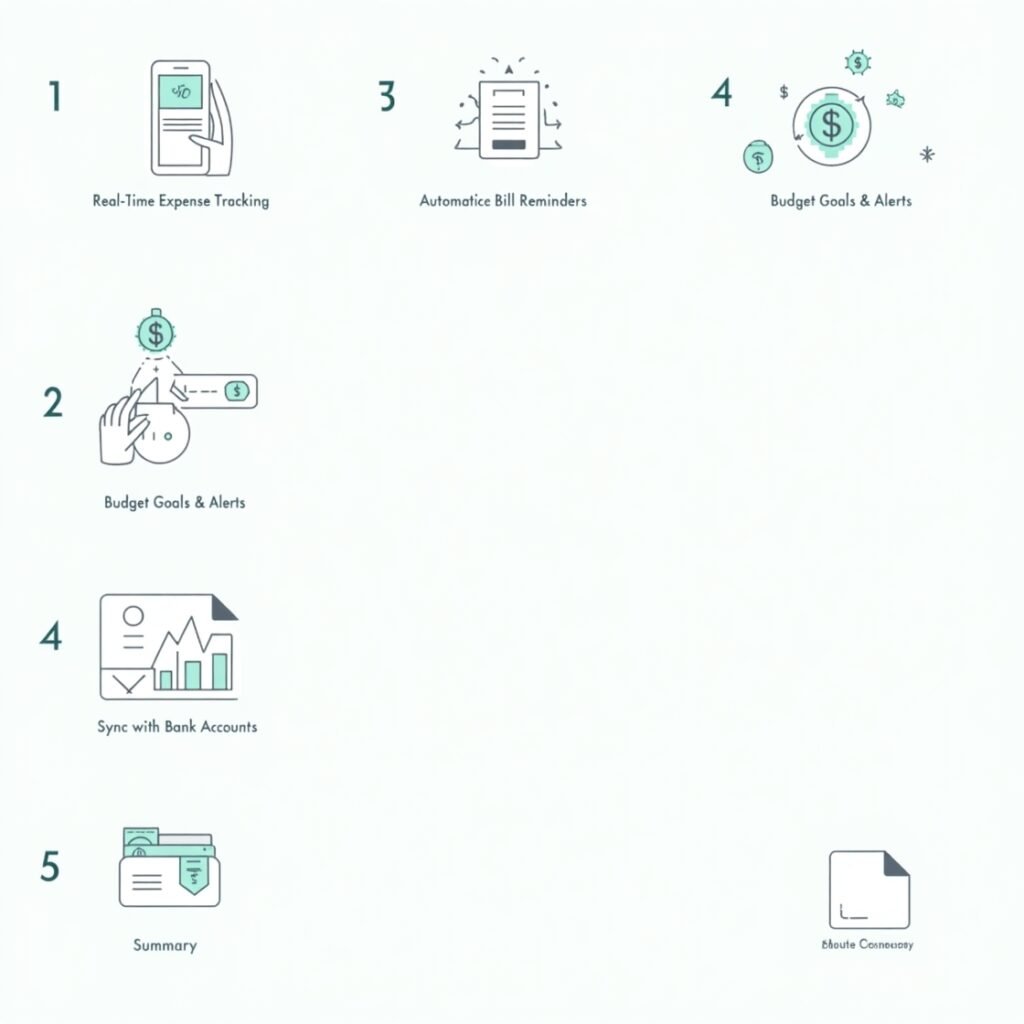Budgeting mistakes can derail your path to financial success, but they’re easy to fix with the right know-how. Whether you’re a young adult starting out or a family juggling bills, smart money management is key to avoiding debt and building wealth. At EliteOnBudget.com, we’re here to help you sidestep common pitfalls with practical budgeting tips. From overspending to skipping emergency funds, these six mistakes are ones you can’t afford to make. Ready to take control of your personal finance? Let’s dive into how to avoid budgeting mistakes and set yourself up for long-term stability!

Why Budgeting is the Foundation of Financial Success
A solid budget is like a roadmap for your money. It helps you avoid debt, save for goals, and live stress-free. Budgeting mistakes, though, can throw you off course. Getting it right means more freedom and financial success for young adults and families.
In 2025, with rising costs, budgeting is more crucial than ever. A simple notebook or app can keep you on track. Avoiding common errors ensures your money works for you, not against you. Let’s explore the top budgeting mistakes to steer clear of.
“A budget isn’t about restricting yourself—it’s about empowering your financial future.”
Use tools like NerdWallet’s free budget calculator to quickly understand where your money is going.
Mistake 1 – Not Tracking Your Expenses
Why It Happens
Many people skip tracking their spending, thinking it’s too tedious. They rely on mental math or bank statements, which leads to overspending. This budgeting mistake is common among beginners who underestimate small purchases. Young adults often fall into this trap, especially with digital payments.
How to Fix It
Start tracking every dollar with a notebook or app. Use free tools like Mint to categorize expenses automatically. Check your spending weekly to spot patterns. This simple money management habit catches leaks before they become budgeting mistakes.

Mistake 2 – Setting Unrealistic Budgets
Common Traps People Fall Into
Unrealistic budgets set you up for failure. People often cut expenses too drastically, like slashing groceries to $50 a month. This budgeting mistake ignores real-life needs and leads to frustration. Families especially struggle when budgets don’t account for kids’ expenses.
Practical Tips to Stay Realistic
Base your budget on actual spending from the past three months. Leave wiggle room for unexpected costs, like $100 for miscellaneous. Use budgeting tips like the 50/30/20 rule (50% needs, 30% wants, 20% savings). Realistic budgets build financial success without stress.
“A budget that’s too tight is like a diet you can’t stick to—it won’t last.”

Mistake 3 – Ignoring Emergency Funds
Consequences of Not Having One
Skipping an emergency fund is a major budgeting mistake. Without savings, a $500 car repair or medical bill can lead to debt. Families and young adults often overlook this, assuming emergencies won’t happen. This leaves you vulnerable and derails financial success.
Steps to Start Building an Emergency Fund
Aim for $1,000 in savings to start, then build to 3–6 months of expenses. Save $25–$50 monthly by cutting small extras, like coffee runs. Use a high-yield savings account for better returns. This money management step protects you from unexpected hits.
Mistake 4 – Overusing Credit Cards
The Hidden Dangers
Credit cards are handy but dangerous when overused. High interest rates (20%+) pile on debt fast, especially for young adults. Overspending on cards is a common budgeting mistake that hurts personal finance. Families may lean on credit for daily expenses, creating a cycle.
Smarter Credit Use Strategies
Pay off your card balance monthly to avoid interest. Use cards only for planned purchases, like groceries, within your budget. Set a low credit limit to curb overspending. These budgeting tips keep credit cards from sabotaging your financial success.
Mistake 5 – Failing to Adjust Budgets Over Time
Why Flexibility Matters
Life changes—new jobs, kids, or rent hikes require budget tweaks. Sticking to an outdated budget is a sneaky budgeting mistake. It leads to overspending or missed savings goals. Families and freelancers especially need flexible money management plans.
How to Review and Revise Monthly
Check your budget monthly to reflect income or expense shifts. Adjust categories, like increasing groceries if prices rise. Use a notebook or app to track changes easily. This personal finance habit keeps your budget aligned with your life.
“A budget is a living thing—update it to keep your money on track.”

Mistake 6 – Forgetting to Save for Big Goals
Importance of Goal-Based Budgeting
Not planning for big goals, like a vacation or home down payment, is a budgeting mistake. Without savings targets, money slips through on unnecessary purchases. Young adults and families need goal-based budgeting for financial success. It gives purpose to every dollar.
Examples of Short-Term vs Long-Term Goals
Short-term goals include saving $500 for holiday gifts or $1,000 for a trip. Long-term goals might be $10,000 for a car or $20,000 for a home deposit. Set aside 10–20% of income monthly for these. Budgeting tips like automating savings make this easier.
Final Thoughts on Mastering Your Budget
Avoiding budgeting mistakes is your ticket to financial success. Track expenses, set realistic goals, and save for emergencies to stay on track. With a notebook, pencil, and these money management tips, you can overcome financial anxiety and build wealth. Start small, stay consistent, and watch your savings grow!
Don’t let budgeting mistakes hold you back. Whether you’re a young adult or a family, these strategies work for everyone. Ready to take control of your finances? Explore our free budget planner templates today at EliteOnBudget.com!
Fix Your Budget Checklist
- Track all expenses daily with a notebook or app ($0)
- Set a realistic budget using the 50/30/20 rule
- Save $25–$50 monthly for an emergency fund
- Pay off credit card balances monthly to avoid debt
- Review and adjust your budget every month
- Set one short-term goal (e.g., $500 for gifts)
- Automate savings for a long-term goal (e.g., $10,000 for a car)
Want more practical tips to master your money? Explore our latest guides and tools at eliteonabudget.com and start budgeting smarter today!
